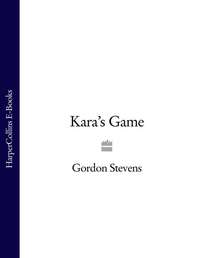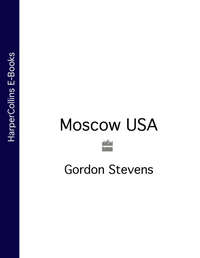
Полная версия
Peace on Earth
Getting his team on the plane would be simple, they would have no difficulty posing as ordinary passengers, using false identities and passports. The problem was how to get their weapons and explosives on with them. Not just pistols, not just inflight perfumes and spirits splashed round the cabin in the hope they would ignite. The weapons and explosives had to be good, the best. Not only that, they would have to be seen to be the best.
There was no sense in hoping he could pick up additional materials half way through, stop for refuelling in, say, Libya, and trust that Gadafy would supply him with what he needed. Gadafy aside, it was too obvious, with too many political as well as military complications. It had also been done before, it was one of the things they would expect, and the only way the hijack would succeed, the only way he would get through it, was if he always did what they did not expect.
Not always, the thought came into his mind, it was not correct that he should always do what they did not expect. Sometimes he would do what they expected. Or would appear to do what they expected. He thought again about what in his mind he referred to as the Dubai factor and began to analyse why he had always thought it was important, how he had always known that one day he would use it.
In December 1984 a group of Shi’ite Moslems had hijacked an airbus of Kuwaiti Airlines en route from Dubai to Karachi and diverted it to Teheran. The hijack had ended six days later when they were over-powered by the Ayatollahs security police dressed as doctors and mechanics. What had attracted his attention, however, was not the way it had ended, despite the fact that it had previously been assumed that Khomeini supported both the hijackers and their cause, nor even the period of waiting in the middle, but the day on which and the circumstances under which the hijackers had boarded the aircraft. It was this which had established itself in his mind as the Dubai factor.
He rose from the chair and made himself a fresh coffee, wondering if they had also seen it, wondering if they would see how he was using it. It was interesting, he was thinking, that he was not just considering those against whom he was being sent, but also those who would be sent against him. He knew they would see it, that it was their job to see it, and began to calculate how he could use that fact against them.
John Kenshaw-Taylor selected a log from the wrought-iron basket inside the inglenook and placed it on the fire. The lounge was warm; he loved the smell and sound of wood burning, the sparkle of lights from the chandelier in the centre of the ceiling. On the oak beam which spanned the massive fireplace stood a glass of his favourite malt. Christmas, he thought, had been good, very good, made even better, he could not help admitting to himself, by the rumours of despondency which had filtered through from the other ministries, worries at Central Office about the decline in popularity ratings, and concern at the Exchequer about the gradual but persistent fall in the value of sterling, the acrimonious sessions in his own previous department about his successor’s failure to find the means to a settlement of the oil dispute which was increasingly being seen as the major underlying cause of the weakness of the pound. In two days’ time the new Energy Minister would fly to Zurich for the latest round of oil negotiations. It would not, Kenshaw-Taylor felt, be a successful trip. As a member of Her Majesty’s government, he reflected, reaching for the malt, he could take no pleasure in such a failure by a fellow member of government, especially one who, like him, had been short-listed as a potential leader of the party within the next decade.
The door opened and his wife came into the room. He stood up, told her how lovely she looked, and poured her a sherry. ‘Thanks for a really lovely Christmas, darling,’ he said. ‘I’ve really enjoyed it.’ They stood looking at the fire. ‘Pity it has to end. Pity I have to be away for a few nights.’
The first guests arrived five minutes early, the last a mere ten minutes late. The people he and Samantha had invited were those whose company he enjoyed, a merchant banker, a barrister, a shooting partner, rather than those, like the chairman of the local Conservative Association, whom he felt compelled to entertain regularly in order to protect his constituency base. They were, however, not without influence, both inside and outside the party.
The dinner, he insisted, was simple and straightforward, though he did concede that it had been tastefully prepared and presented, joining his guests’ demands that cook should leave the kitchen to receive the accolades personally. Thinly-sliced raw salmon, marinated briefly in a mix of fresh lime juice, crushed coriander seed and olive oil from a recipe he had picked up in a little auberge he knew in the South of France, with a Riesling Clos Ste Hune 1976 vintage. Pheasant Souvaroff, the game shot by himself and hung for two days and no more (Kenshaw-Taylor did not stand on the custom of hanging a bird till the flesh was falling from its bones), with a purée of celeriac, a mélange of carrots and leeks, and almond potatoes, plus a 1978 vintage Château Rayas. And tartlet with kiwi fruit and raspberry sauce, accompanied by a Schloss Vollrads Trockenbeerenauslese by Graf Matushka-Greiffenclau, whom, he happened to mention, he had met at Claridge’s in the autumn. When they had finished he suggested they tried a Stilton he had bought for Christmas but which he judged had not come right in time, ignoring their protests when he fetched a 1960 Quinta do Noval from the cellar.
The party finished at one. They told cook she could do the washing up in the morning and went to bed.
‘You know, darling,’ his wife said as they went to sleep, ‘I have a feeling this is going to be your year.’
Two months after they arrived in Israel, Yakov Zubko and his family were given their new home. It wasn’t big, the social worker from the Jewish Agency told them when she called them to her office, and it wasn’t in the city, yet she believed them when they told her it didn’t matter, that at least it was home.
The following weekend Yakov Zubko took his family to see it. They rose at five, Yakov making breakfast and tidying the flat while Alexandra packed them sandwiches as she had done the day they began their journey out of Russia. The social worker had suggested she come with them but had not been surprised when they declined her offer. We, the family Zubko, managed to leave Russia, they told her and we, the family Zubko, can find our own way to our home.
They caught the bus before the sun was up, leaving the city and travelling east, the morning still cool, passing through Ramla and Jerusalem before turning south towards Hebron. They had been out of Tel Aviv before, had knelt at the Wailing Wall and stood in silence at Yad Vashem; but today was different. When she did not have to hold her daughter, Alexandra squeezed Yakov’s hand.
Конец ознакомительного фрагмента.
Текст предоставлен ООО «ЛитРес».
Прочитайте эту книгу целиком, купив полную легальную версию на ЛитРес.
Безопасно оплатить книгу можно банковской картой Visa, MasterCard, Maestro, со счета мобильного телефона, с платежного терминала, в салоне МТС или Связной, через PayPal, WebMoney, Яндекс.Деньги, QIWI Кошелек, бонусными картами или другим удобным Вам способом.






